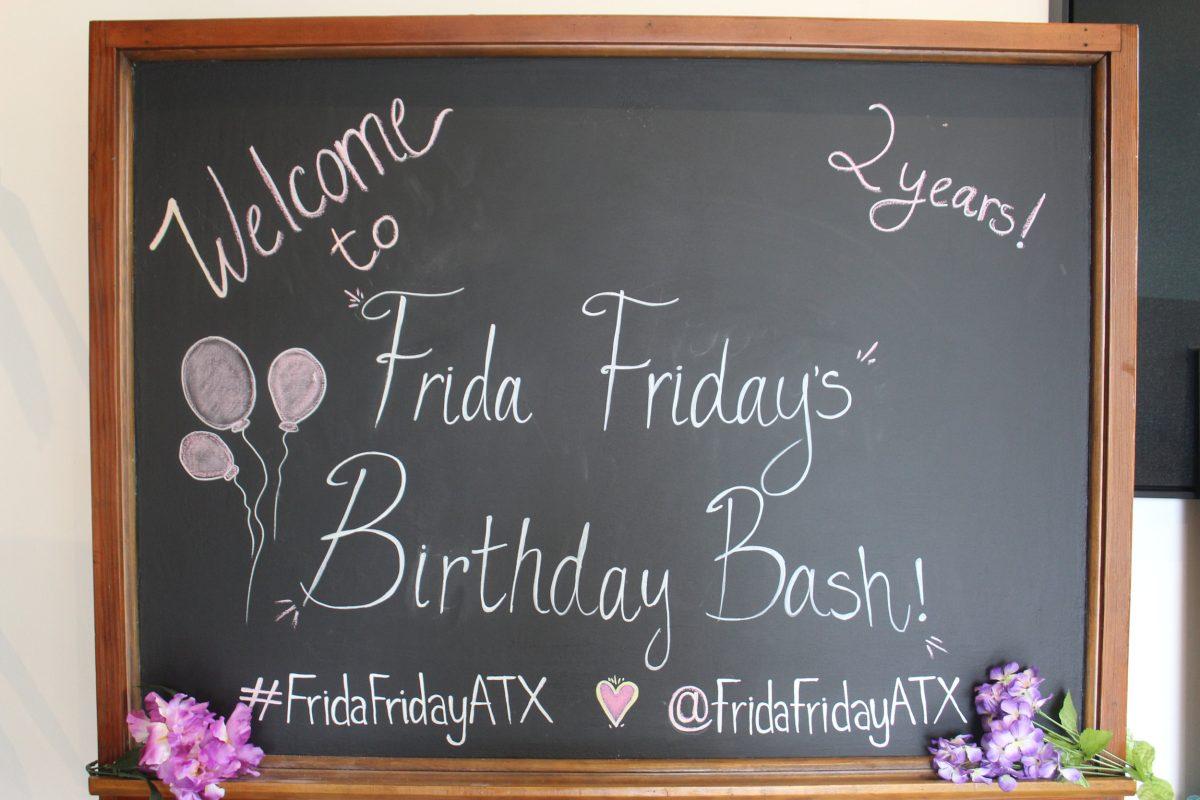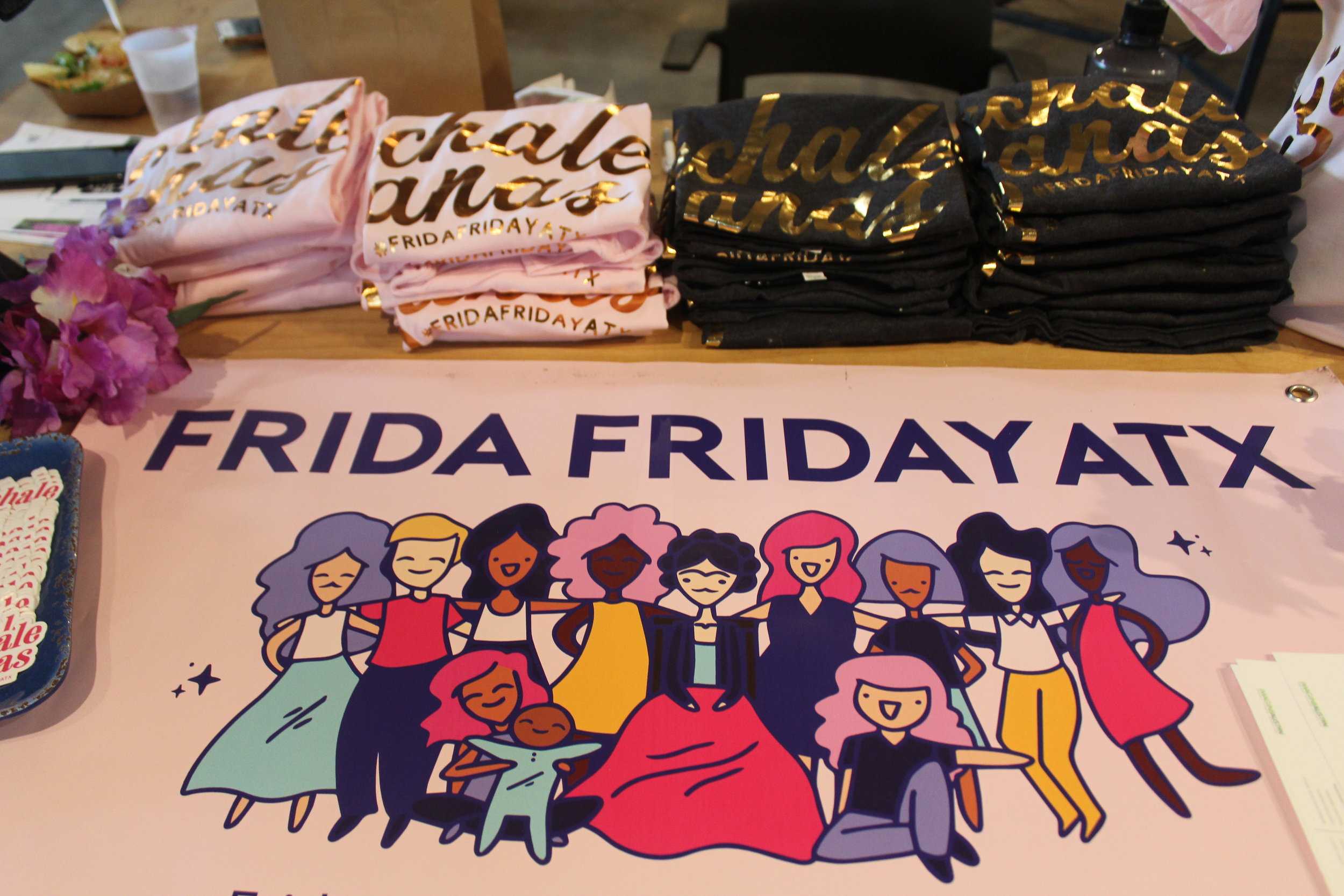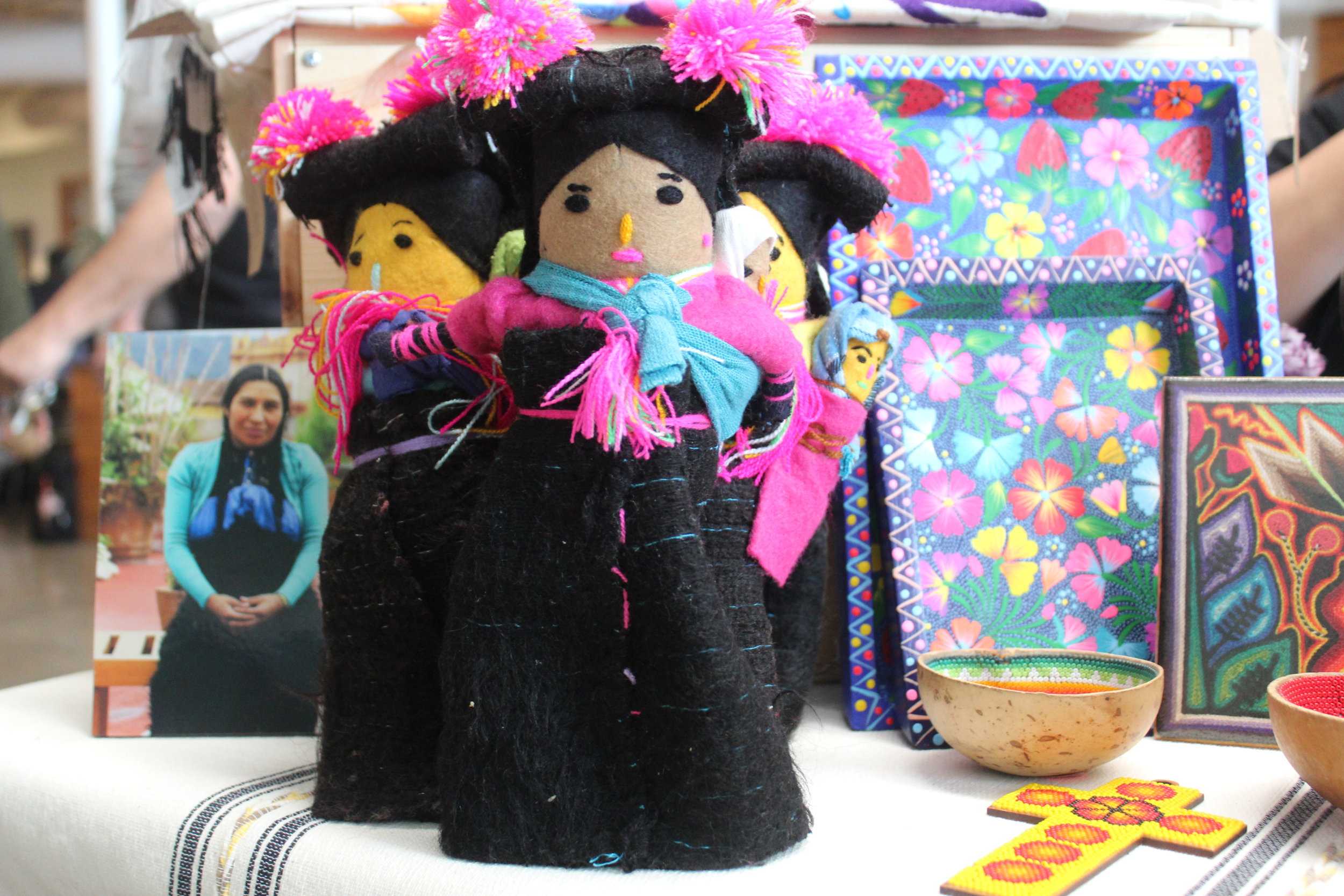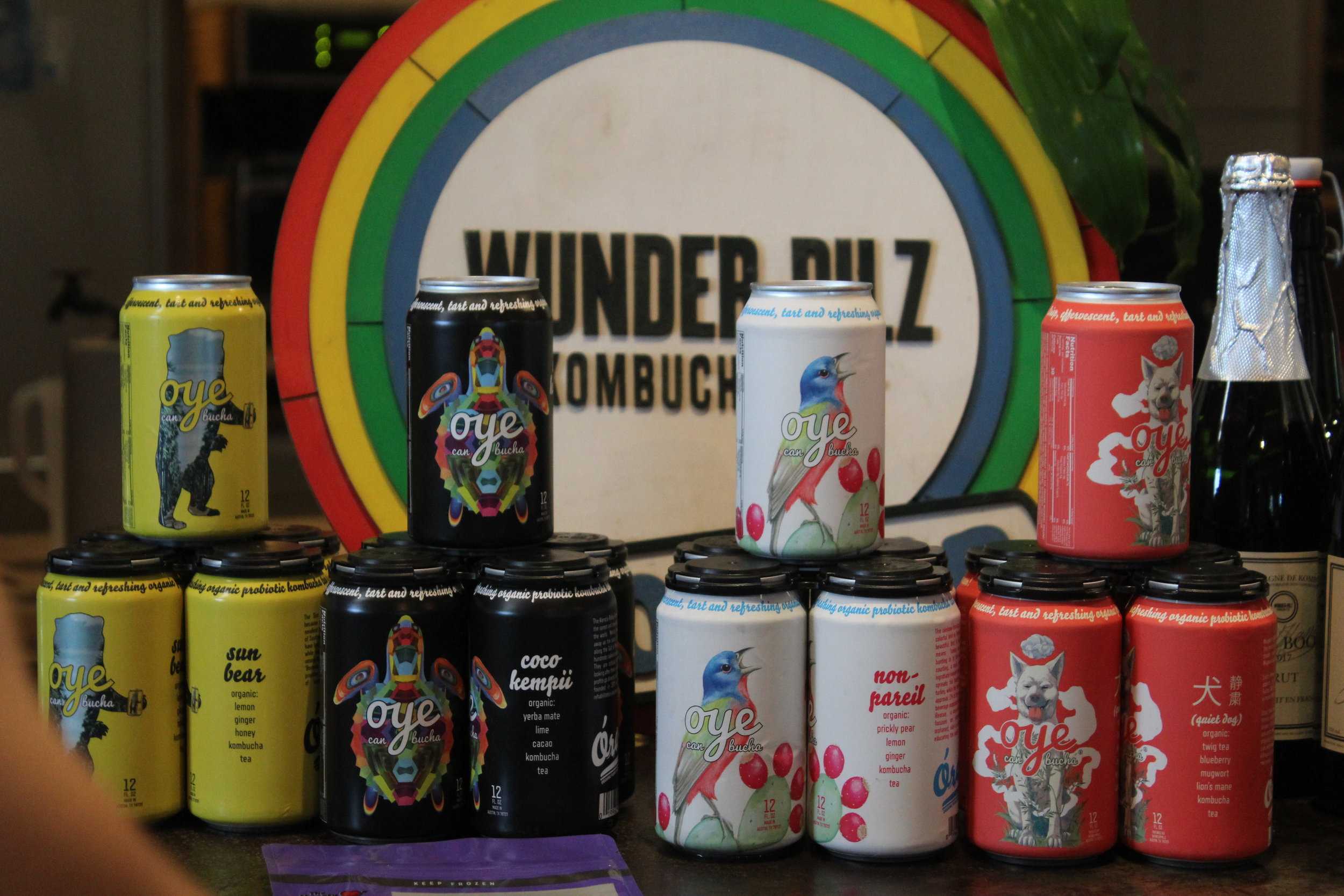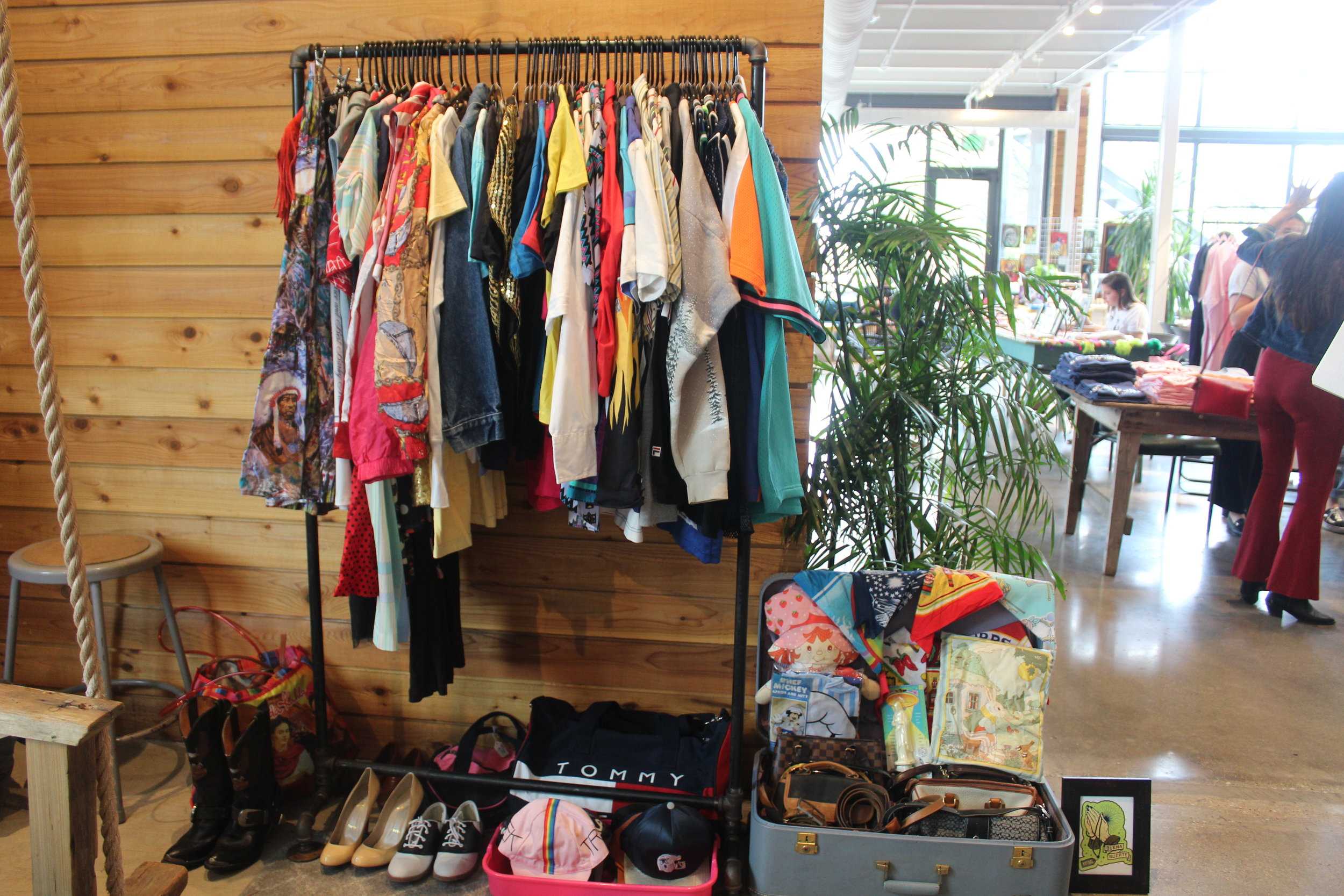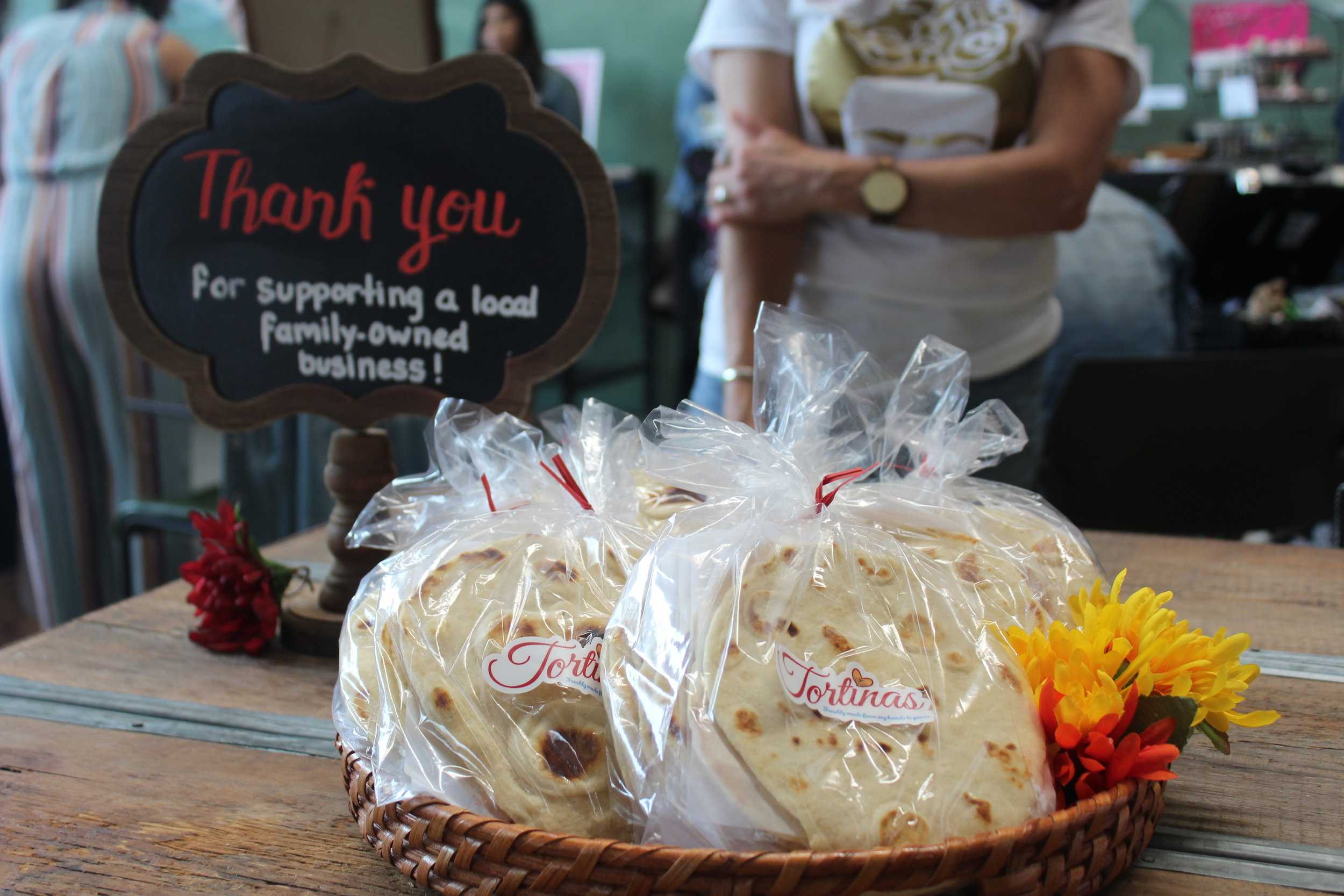On Saturday March 16, Austin’s own Frida Friday celebrated two years of supporting local womxn of color-owned businesses by providing them with a space to set up shop. The vendors offered food, jewelry, fashion and their thoughts on what it means to be a female business owner of color in Austin today.
Story by Juan Alfonso Nuñez Rodríguez
For the closing day of the two day celebration, the Latinx-led and womxn of color centered market transformed Gather Venus into a hotspot of cultural exchange. Since Frida Friday’s opening two years ago, the local monthly market has provided dozens of WOC businesses with an opportunity to gain exposure among the greater Austin public.
As much as many Austinites would love to support WOC-owned businesses, it’s easy to get lost in the sea of establishments Austin has to offer. As the city’s first and only WOC centered market, Frida Friday elevates these businesses once a month by bringing them together and providing them with a space in which their craft can speak for itself. “You feel visible,” explains Stephanie Borgas, owner of Buena Suerte Vintage. “It’s nice to see the husstle, women unloading things from the car and set up something they love.”
A Nicaraguan native who has resided in Austin for 10 years, Borgas finds clothes from thrift stores around the world and brings them back to Austin as a way to provide locals with more options to express themselves in a way that is creative and affordable. She says Frida Friday not only helped her business by giving her a new platform, but by inspiring a change in the way her store operates.
Seeing the general public attending the event inspired Borgas to expand her clothing and accessory options to include options for men and individuals who might not find thrifting styles as easily. When asked about her inspiration, Borgas simply stated “Latinx people are very stylish, really about their looks” with a prideful smile and a rack of clothing items behind her.
On the opposite end of the venue, three Brownsville friends have a table stacked with products completely designed and produced by themselves. Jennifer Serrano started Jen Zeano Designs three years ago when she found herself unemployed. Serrano was just one of countless Latinas living out the very real effects Latinas have to face in the working field.
As the single lowest paid demographic in the nation, Latinas have begun to stop relying on being hired into industries that simply aren’t made for them to thrive in. Rather, they are creating their own businesses and utilizing their identity as a financial advantage. Serrano’s designs are centered around Latina pride and power; she explains that she was inspired by her own culture and aims to empower Latinas.
In a similar sentiment, Cindy Lagunas uses her business to empower Latinas outside the United States. Lagunas spends her year traveling to and from Jalisco and Chiapas, Mx. There, she shops directly from indigenous textile makers carrying on century long traditions and provides them with a wider market.
She explains these makers have to rely on tourists who often are only willing to buy their craft for cheaper prices. Lagunas encourages the makers to charge her as much as they feel the pieces are worth and then brings the items to U.S. markets, expanding the exchange of these textiles and traditions beyond borders. This is her fourth Frida Fest. “I love it, seeing all these women of color,” Lagunas says. “You don’t really find that often.”
Beyond fashion and textiles, the festival had a plethora of business options for Austinites to choose from. Tina Bernal of Tortinas hand makes flour tortillas as a means of introducing others to an authentic aspect of her culture. She says she was encouraged by her friends and family and now gets to share it with the rest of the city, a process made possible through Frida Friday and similar venues.
Alaine Hutson’s steel bracelets and rings from Social Justice Jewelry aim to empower wearers by letting them show off “what you’re not gonna take and what you’re gonna stand for.” Shoppers can choose from different bracelets marked with different social inequalities and oppressions, which she calls the allergies, as well as different methods of combating hatred and ignorance, which she calls the antidotes. Hutson’s work is usually sold in museums, but she says Frida Friday has given her the opportunity to meet and speak to other women entrepreneurs and has a “noticeable positive influence into Austin.”
It was impossible to not feel the support from business to business at Frida Friday. Each of the women seemed happy for the success everyone was having, each understanding the hardships the other might have gone through because of her position not just as a business owner but as a woman of color. While the celebration offered everything from fashion to food to drinks to accessories and even a trenza booth, no one left the event without having acquired hope for a more WOC dominated market.































